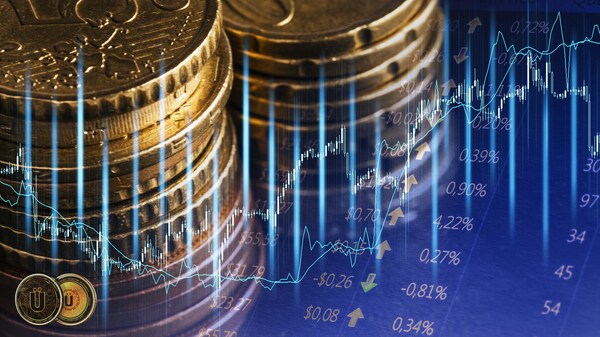The DCMA Explains Why an International CBDC is the Best Innovation for Store of Value and Medium of Exchange
WASHINGTON, May 22, 2023 /PRNewswire/ -- At the International Monetary Fund (IMF) Spring Meetings 2023, the Digital Currency Monetary Authority (DCMA) announced the official launch of Unicoin, an international central bank digital currency (CBDC), that can transact SWIFT-like cross-border payments over digital currency rails completely bypassing the correspondent banking system at guaranteed best-priced FX rates and with instantaneous real-time settlement.
Universal Monetary Unit (UMU), Unicoin, symbolized by ANSI Character, Ü, is legally a store of value money commodity regulated by the U.S. Commodities Futures and Trade Commission (CFTC) and can transact in any legal tender settlement currency.
A national CBDC and an international CBDC are vastly different. A national CBDC is merely a digital form of legal tender and carries the same economic reality of its legal tender. If a national legal tender is systemically depreciating in value, so will its CBDC.
An International CBDC is not an unbacked cryptocurrency like Bitcoin and is not a national CBDC issued by central banks. So, what is it and how does it work?
It is challenging for many central banks to maintain monetary sovereignty of its legal tender because global forex markets value a legal tender in relative value to its advanced economic trading pair, such as USDMXN, regardless of the fiscal and monetary policies a government and central bank may adopt.
This trading pair encumbrance in the international monetary system is the reason why most national currencies are not a great store of value and the reason why many emerging market economies are seeking cryptocurrency alternatives.
The problem with cryptocurrencies is that they are too volatile and do not perform like money. Crypto volatility is vastly caused by its limited circulating supply controlled by a few large coin holders, or whales, and an organized number of 'pump and dump' traders and market makers who trade up the price of a cryptocurrency with the intent to dump it in large volume once it hits a price target.
The high volatility of crypto is ideal for short-term speculative traders but comes at the expense of the coin not being widely adopted as a resilient store of value and as a medium of exchange.
Unicoin solves the shortcomings of both CBDCs and cryptocurrencies and brings together the best of both worlds into one cryptographic innovation.
Unicoin is a money commodity that can coexist alongside any national legal tender. Unicoin adopts a monetary policy framework with decentralized governance, establishing a digital economic union amongst its participating countries and qualifying Unicoin as a reserve currency for central banks.
Its monetary policies are designed to minimize volatility and to sustain its value better than any fiat legal tender mitigating against and potentially reversing seasonal and systemic local currency depreciation.
For example, if a commodity purchase contract or a foreign direct investment (FDI) is negotiated in U.S. Dollars, and the payor's national currency depreciates on average ten percent a year, that contract would increasing cost approximately ten percent more each year, $1.1M, $1.2M, etc.
Whereas, if the payor held their money in Unicoin over a one-year period and then paid the equivalent UMU value at the time of payment, that same purchase or FDI contract could cost $500,000 USD instead of $1.1M USD.
The actual USD cost depends on the improved store of value of UMU over the same period.
Unicoin adopts monetary policies, liquidation controls, asset pricing targets, and its own network of in-house market makers to minimize downside volatility and to achieve its asset pricing targets.
Unicoin can withstand buying and selling shocks to its monetary system while maintaining price stability. Unicoin is not sold at the best market price like most asset classes. Best market pricing is another practice that leads to continual price volatility.
Unicoin is always sold at a significant discount to its network market value. This monetary policy enables establishing and controlling the asset pricing of Unicoin over time.
In summary, Unicoin is a low-volatility money commodity with cash reserves, performs like money, and is governed as a sustainable store of value and a medium of exchange. In addition, it functions like a CBDC and complies with all the banking sector regulations for KYC, AML, sanctions, and other requirements.
Unicoin deploys a global localization digital currency public monetary system enabling each central bank to configure their own compliance and money transfer rules. Then, at the time of payment, only the payor and payee jurisdiction rules are applied to enforce compliance.
Unicoin is politically agnostic with no centralized enforcement rules and no centralized surveillance features. Each government and central bank decide on their national and monetary sovereignty rules and configure those rules within the Unicoin Network.
For more information on the DCMA, visit https://dcma.io.
Media Contact:
Ruth Marshall
+1-704-303-5359
359373@email4pr.com
SOURCE Digital Currency Monetary Authority

WANT YOUR COMPANY'S NEWS FEATURED ON PRNEWSWIRE.COM?
Newsrooms &
Influencers
Digital Media
Outlets
Journalists
Opted In

Share this article